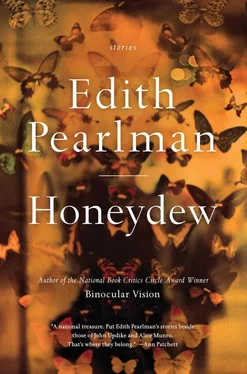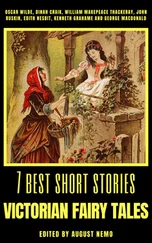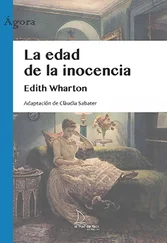But to Robin and Bella the most extraordinary feature of the Golden Swan was the twenty-four-hour buffet. This occupied the entire aft section of the promenade deck. While eating you could watch the golf balls from the deck below soar into the sky and fall into a sea that was Wedgwood here and navy there and, late in the day, the purple of clematis. If you chose to face the buffet tables you saw colors more various. Pancakes were golden disks. Buckets of chowder sent up silvery steam. There were jeweled salads; hams as rosy as happy cheeks; mountains of tropical fruits. Mauve veal tongues lay on beds of lettuce. And ocher breads — there were glazed breads; grained breads; breads made with berries; breads made with olives; and the most delicious bread of all, a dense hard oblong cut into thin slices, tasting as if its flour had been ground from magic nuts and baked by gnomes in a forest hut. Two hollow-cheeked men spent all day carving roast beef. Another man continually dished out foamy scrambled eggs augmented with mushrooms, or tomatoes, or asparagus. There were cheeses of all varieties…runny, slippery, chewy, blue. Soufflés, one kiwi-colored, the other pale orange.
Their interior stateroom was just big enough for two narrow beds and two night tables. Cupboards and closets were built into the wall. The bathroom was a clever little wedge. Their beds got made and their bathroom cleaned the minute they left for breakfast, or so it seemed; at any rate, whenever they returned, the beds were taut and the bathroom polished. A small person took care of their rooms and other rooms on the corridor. At first they had only fleeting glimpses of this genderless figure — a flash of mustard-colored trouser; a dark elbow reflected in the mirror of someone’s open room.
But on the third morning Bella was gripped in the bowels as they were on their way to tap dancing. All those pancakes! She puffed back to their room, and saw that the tiny bathroom was occupied, so to speak. The yellow uniform, its back to her, knelt before the toilet. Dense hair was wound into a thick bun — a woman, then. Her feet protruded into the room.
“I’m sorry,” Bella said, but the devoted scrubber didn’t pause. “I’m sorry,” Bella repeated in a louder voice, and touched the yellow back. The woman sprang up. “I’m sorry,” Bella said for the third time. “I have to…”
The maid, standing now, bowed without smiling. She was square-faced and plain, of an indeterminate age — sixty? She slid out of the compact john, and Bella squeezed into it and relieved herself of a pungent stool. She washed her hands, and left without looking again at the small woman. A half hour later, studying her feet in the mirror as she practiced the shuffle, she suddenly recalled that she had failed to flush the toilet. Well, that could happen to anyone, couldn’t it, she said to the abdomen above the legs, the bosom…but her shame persisted, as if she had treated the servant like a robot.
This first port was the capital of a newly independent island nation. Its city hall had once been a governor’s palace, and public gardens exploded with hibiscus and jasmine. Citizens hissed in Spanish. Robin had more or less kept up her college Spanish because so many of her patients spoke it. She exchanged some sentences with the proprietor of a hammock store, who praised her mastery of the polite form. Guides and souvenir sellers were fluent in English.
But there was a third language, Bella noticed, probably some indigenous Indian dialect. The darker the person and the more menial his task, the more likely he was to use this tongue with coworkers. Some form of the same vernacular was common in other ports too — all of which, by their fourth debarkation, had merged in their minds. The ports were not only incidental, as Dr. Hartmann had warned; they were interchangeable. Oh, there were some differences — the first was reminiscent of the conquistadores; the second had one cathedral and one thousand shops; the third, reputedly narco-friendly, featured trips into the jungle to listen to monkeys; the fourth was a South American coastal city famous for its university, its school for the deaf, its pre-Columbian fort. But they were all colorful, noisy, polyglot, and — Bella said, and Robin agreed — falsely welcoming. They were places you would never want to live in and were rather glad to leave, to walk up a road leading to a brief gangplank leading to a man who checked you in. Home! The Golden Swan had become their town — a town with few laws and a loose cordiality. In the dining rooms people sat with other people at tables for ten; urged by the headwaiter, you joined a table with empty seats remaining, or began a new table which was quickly filled. Nobody dressed up. Children — there weren’t many, March not being school-vacation month — couldn’t roam free; one of the blond officers who did roam free would take an unattended child by the hand and find its parents. Passengers were not allowed in the area where the staff and crew slept. But nothing else was prohibited.
Some people began to seem like neighbors. There was a family from Maine with a retarded ten-year-old son and a clever daughter of twelve who could convert knots to miles per hour and had read up on all the ports. Melinda was staying out of school in order to make this trip, to do her share of diverting her brother. There was a short, freckled pharmacology graduate student who had brought along the research paper he was working on. He explained it at boring length to Bella’s silence and Robin’s occasional “Fascinating, Luke!” There were three women in their fifties, happy to be together, as if celebrating a reunion. They weren’t from the same city, they weren’t cousins, they weren’t classmates—“Not exactly,” the one who was a lawyer laughed. “Something like,” said the one who was a social worker. The one who seemed to be a pampered housewife merely smiled.
Some of the staff became recognizable — the thin-faced men serving at the buffet, the dance instructor, the lifeguards, and their corridor’s silent maid. They met another maid too — or at least saw her closely. They had taken a wrong turn after a fitness workout; wandering down a corridor, they came to a door labeled INFIRMARY. A long-haired girl with Indian cheekbones was sweeping the floor nearby.
“Hello,” Bella said. “How do we get to the swimming pool?”
No answer but a smile.
Robin repeated the question in Spanish.
The young woman leaned her broom against the wall and disappeared into the infirmary. A starched redhead came out. “Yes?” she inquired, and then gave brisk directions while the maid resumed sweeping. How beautiful she was.
Elderly Dr. Hartmann with his scrupulous goatee liked his own company. Bella had once spied him entering one of the restaurants; there, for the price of a dinner, he could sit at a table by himself. But he didn’t seem to mind her joining him in the library. In his cultivated presence she was ashamed to read her usual undemanding fare, so she was laboring through the stories of Thomas Mann, twenty pages or so every afternoon.
Every afternoon…For, unlike Robin, Bella needed to withdraw from the stimulation of the ship. So much noise — splashing, laughter, piped music, the clang of coins in the little casino. Luke’s talk, full of Latinate polysyllables. And worse: the outdoor buffet, the only place to have breakfast and lunch, had begun to sicken her soon after her first sight of its art-gallery brilliance. If only it were merely a picture it would have continued to please. But it was actual, tangible; it did not signify, it was. Real people with real stomachs jostled one another, and piled food onto their plates, and consumed the stuff, and returned for more — Robin did it; young Melinda too; the three ill-assorted women. The underweight Luke listened to Robin’s assessment of various pastries and followed her advice and then had seconds of his own choosing. Dr. Hartmann inserted forkfuls of omelet into his old mouth. Perhaps he needed the moisture. Perhaps he was determined to get his money’s worth. Meanwhile Bella grew helplessly abstemious. Dry toast for breakfast became all she could manage, a piece of fruit for lunch. A bit of main-dish chicken at night.
Читать дальше












